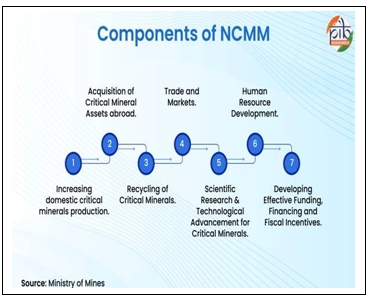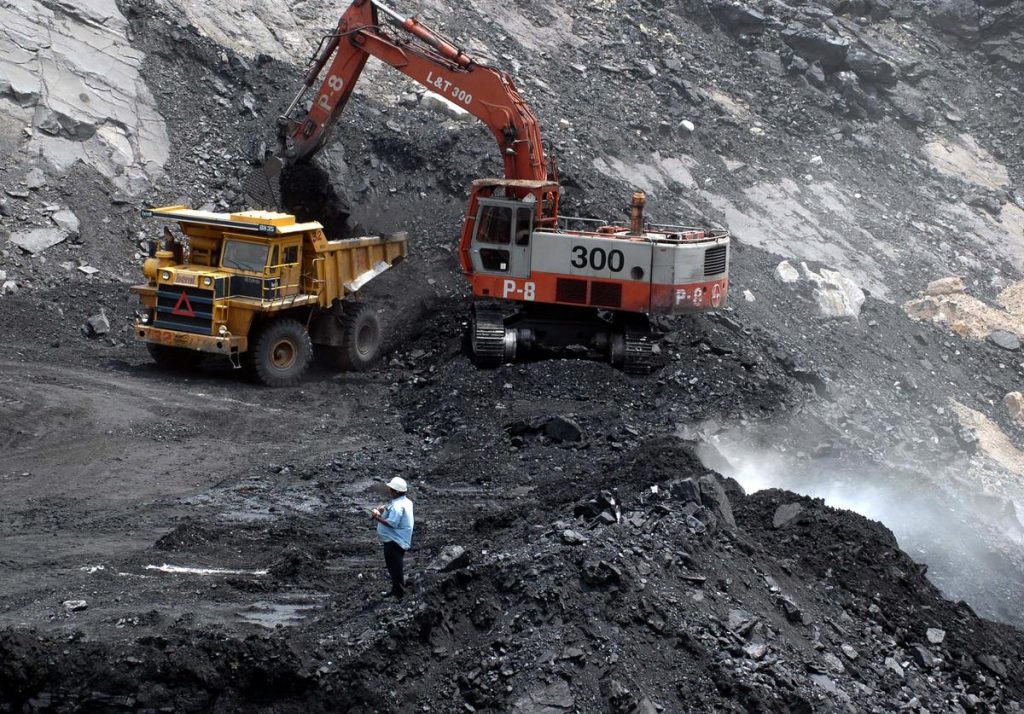SYLLABUS
GS-3: Indian Economy and issues relating to planning, mobilization, of resources, growth, development and employment.
Context:
The Ministry of Environment Forest and Climate Change has exempted mining projects involving atomic, critical, and strategic minerals from the process of public consultations, citing national defence, security, and strategic requirements.
More on the News
- The decision is based on national defence, security requirements, and strategic considerations. It was formalised through an Office Memorandum (OM) in September 2025.
- Alongside regulatory changes, the Union Cabinet recently cleared a ₹1,500 crore incentive scheme under the National Critical Mineral Mission (NCMM).
Features of the Exemption
- Expert Appraisal Committees: All the exempted projects will be assessed directly at the central level through sectoral expert appraisal committees, regardless of their size.
- Exemption Clause : The exemption is based on provisions under the Environment Impact Assessment (EIA) Notification, 2006, which already permits exemptions for projects related to national defence, security, or other strategic concerns.
- Exempted Minerals: The exemption covers projects involving atomic minerals (Part B) and critical and strategic minerals (Part D) under the Mines and Minerals (Development and Regulation) Amendment Act, 2023.
Reasons for Exemption
- Defence Application of Minerals: The Defence Ministry highlighted the critical role of rare earth elements (REEs) in advanced defence systems for radars, navigation aids, communication systems and display systems, armoured vehicles, and precision-guided weapons.
- Supply Risk: India faces a high supply risk for rare earth elements due to their limited global availability, highlighting the urgent need for accelerated domestic exploration and supply.
- Atomic Resources Requirement: The Department of Atomic Energy emphasised thorium and uranium’s role in India’s nuclear programme, stressing monazite-rich beach sands as crucial for the third stage and need for increased production from new deposits.
Recent Regulatory Reforms
- Parivesh Portal: The Environment Ministry on the request of Ministry of Mines has added a separate category for exempted projects on its online clearance system named Parivesh.
- The Van (Sanrakshan Evam Samvardhan) Rules, 2023: These rules were amended to include a clause facilitating faster forest approvals for such mining projects.
- The Mines and Minerals (Development and Regulation) Amendment Act, 2023 (MMDR): It added atomic, critical, and strategic minerals to its schedules to promote exploration and mining.
National Critical Mineral Mission (NCMM)

- The National Critical Mineral Mission was launched in January 2025, for a period of seven years from 2024-25 to 2030-31 and aims to secure a place for India as a global player in the emerging green economy.
- The NCMM’s legal and policy framework is based on the MMDR Act amendment, granting the central government exclusive rights to auction 24 of the 30 identified critical minerals.
- The primary objectives include securing domestic and international supply sources and strengthening mineral value chains covering exploration, mining, processing, recycling, research and development, and human resource development.


